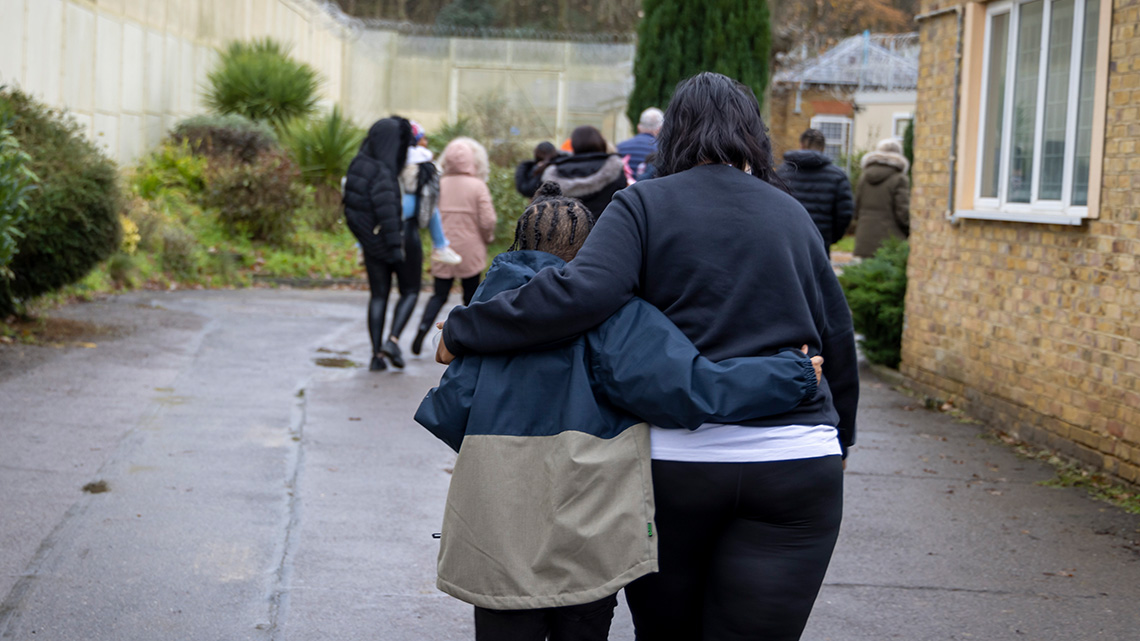Image Credit: CBCEW
Bishop Richard Moth, the Lead Bishop for Prisons for the Catholic Bishops’ Conference of England and Wales, and Bishop Rachel Treweek, Anglican Bishop for Prisons, have issued a joint statement supporting Amendment 172 to the Victims and Prisoners Bill.
The amendment to the Bill, currently at the Committee Stage in the House of Lords and due to be debated today (25th March), requires the central collection and publication of data that shows the number of primary carers in the prison system, how many children they are responsible for, as well as the ages of those children.
According to the two bishops, this will help society understand the “devastating consequences” that the imprisonment of a primary caregiver can have on a child.
They said:
“Given the absence of any systematic recording and reporting of the number of children affected by imprisonment and the compelling evidence that the imprisonment of a primary carer can have devastating consequences for the development of a child, we believe that such an amendment is both necessary and proportionate to inform our criminal justice policy in an area of great and growing social concern.”
The amendment, tabled by Lord Farmer with support from Bishop Treweek and Labour Peers Lord Ponsonby and Baroness Thornton, will help understand and address the experience of the over 17,500 children estimated to be separated from their mothers in prison, as well as those without other primary caregivers.
Bishop Moth and Bishop Treweek agreed:
“Substantial research has revealed that children affected by the imprisonment of a primary carer are hidden victims of the criminal justice process, especially in the most common cases where their mother has been sent to prison.
“A mother’s imprisonment is often a profoundly disruptive and traumatic experience affecting all aspects of a child’s life, regardless of the age of the child or the length of the sentence, while the rupturing of relationship between a prisoner with primary caring responsibilities and those in their care can itself be a significant stumbling block to rehabilitation.”
They added:
“When we consider that 31% of our female prisoners and 24% of our male prisoners were themselves taken into care as children, we can see that caring for children, especially those affected by imprisonment, is critical for the flourishing of all within our communities.”
Full Statement
Joint statement by Rt Rev Richard Moth, Bishop of Arundel and Brighton and Catholic Liaison Bishop for Prisons, and Rt Rev Rachel Treweek, Bishop of Gloucester and Anglican Bishop for Prisons, in support of amendment 172 to the Victims and Prisoners Bill
We would like to express our shared strong support for an amendment to the Victims and Prisoners Bill, currently at Committee Stage in the House of Lords anddue to be debated on 12th March, that seeks to better understand and address the complex needs of children affected by the imprisonment of their primary carers.
Laid by Lord Farmer with support from the Bishop of Gloucester and Labour Peers Lord Ponsonby and Baroness Thornton, amendment 172 would require the central collection and publication of data identifying the number of primary carers in prison and the number and age of their children. Given the absence of any systematic recording and reporting of the number of children affected by imprisonment and the compelling evidence that the imprisonment of a primary carer can have devastating consequences for the development of a child, we believe that such an amendment is both necessary and proportionate to inform our criminal justice policy in an area of great and growing social concern.
As Christians, we share a common calling to care for all those affected by crime and punishment, including those who have been victimised. Substantial research has revealed that children affected by the imprisonment of a primary carer are hidden victims of the criminal justice process, especially in the most common cases where their mother has been sent to prison. A mother’s imprisonment is often a profoundly disruptive and traumatic experience affecting all aspects of a child’s life, regardless of the age of the child or the length of the sentence, while the rupturing of relationship between a prisoner with primary caring responsibilities and those in their care can itself be a significant stumbling block to rehabilitation. Although voluntary organisations, such as the Prison Advice & Care Trust, do much valuable work in maintaining healthy connections between prisoners and their families, the scope and scale of the challenge of parental, particularly maternal, imprisonment surely requires a much greater response.
Although the catastrophic impact of maternal imprisonment on children and the importance of family relationships in reducing reoffending have previously been highlighted by the Corston Report and the Farmer Review, there are still more than 17,500 children estimated to be separated from their mothers in prison. By gathering more accurate information on the number of children in such cases, we can better inform an integrated approach across Government, HMPPS, local authorities and voluntary organisations to address the complex needs of such children and their imprisoned primary carers whose voices have been unheeded for too long.
In the midst of his public ministry, Christ reminded us to “let the little children come to me and do not hinder them, for to such belongs the kingdom of heaven” (Matthew 19:14). The inherent dignity of children and their need for care in vulnerable situations is paramount to Christian teaching and underpins our support for this amendment. When we consider that 31% of our female prisoners and 24% of our male prisoners were themselves taken into care as children, we can see that caring for children, especially those affected by imprisonment, is critical for the flourishing of all within our communities.
Source: CBCEW

